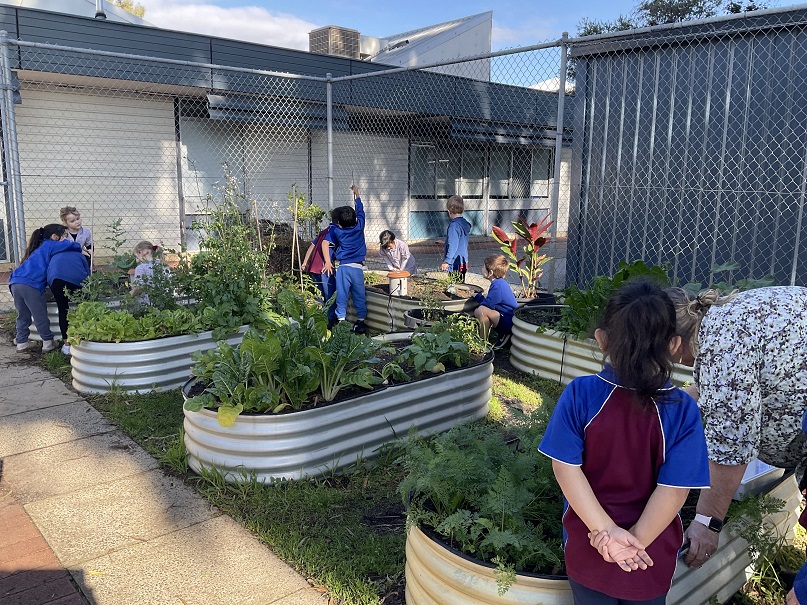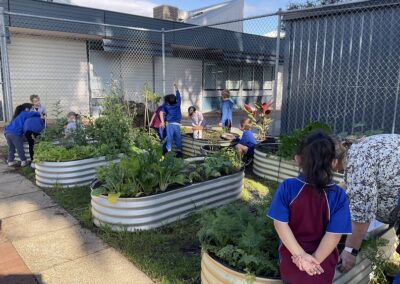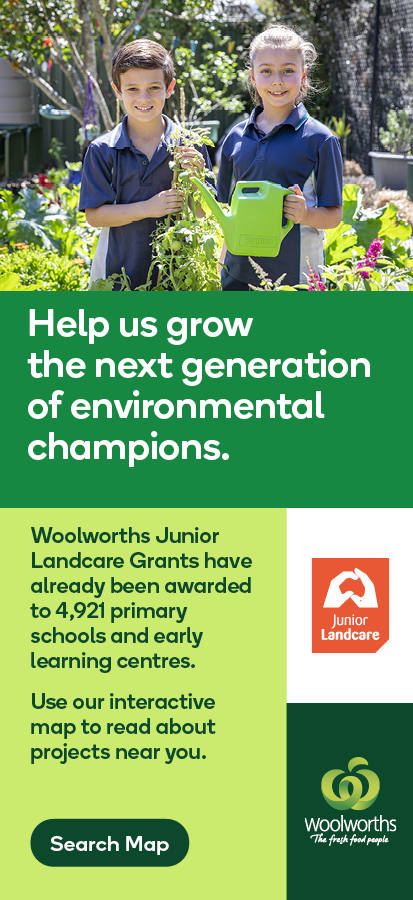CASE STUDY

Age Groups: 7-13
Grant Name: 2022 Woolworths Junior Landcare Grants
School: Parkwood Primary School
Grant Sponsor: Woolworths
Project Overview
Using their 2022 Woolworths Junior Landcare Grant, Parkwood Primary School in Western Australia set about reinvigorating their vegetable garden to reflect the school’s multi-cultural environment. Their new Harmony Garden now includes bush tucker plants, Asian vegetables, as well as unusual vegetables and common vegetables and herbs.
Students were involved every step of the way, from propagating seeds to setting up and maintaining garden beds; dot painting pots for bush tucker plants and signs for garden beds; to harvesting from the garden and setting up new in-ground worm farms and collecting food scraps for the worms.
"This project allowed our students to grow familiar foods from their culture and represent the multi-cultural context of our school," shared Robyn Day, Sustainable Technologies Teacher at the school.
Educational Outcomes
Through Food and Fibre Technologies, students developed an awareness of foods from around the world. They also learnt more about the needs and different parts of plants, using produce for cooking and bush tucker plants from the area.
The project also allowed students to grow their understanding of why the land plays an important role in First Nations culture along with the social aspect of working together to produce their food.
As students were able to access the garden during breaks, it became a very popular place to be, with students becoming industrious cleaning up the garden and weeding all the beds.
They particularly enjoyed getting into the garden digging, weeding and watching their plants grow and using them in their cooking.
Environmental Outcomes
In total, 50 vegetable plants, 30 native plants and 30 herb plants were added to the school grounds through the project.
The school shared that the plants in their Harmony Garden have encouraged insects to play an important role in food production.
The project also deepened students’ awareness of what foods are suitable for composting or worm farming, with in-ground worm farms included in each garden bed. “This reduces food waste within our school that goes to landfill,” shared the school.
Conclusion
In addition to getting the school’s 400 students involved project, parents also began sending in seeds or cuttings to be added to the school’s Harmony Garden, with the school sending home some produce in exchange. Moving ahead, the school is looking forward to further involving parents by inviting them to share recipes that could be made at school.
For tips and instructions to establish a food garden at your school or early learning centre, explore the ‘Creating a food garden’ series of learning activities on the Junior Landcare Learning Centre, here.

 Teachers & Educators
Teachers & Educators Youth or Community Groups
Youth or Community Groups